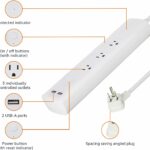Blogging has become an essential tool for individuals and businesses alike to share their thoughts, opinions, and expertise with a global audience. In today’s digital age, where social media and online platforms dominate communication, blogging provides a unique opportunity for individuals to establish themselves as authorities in their chosen niche. Not only does blogging allow for personal expression, but it also serves as an effective marketing strategy, driving traffic to websites and generating leads for businesses. With the right strategies and techniques, blogging can be a powerful tool in building an online presence and achieving success in the digital realm.
What is Blogging?
Definition of blogging
Blogging is the act of regularly publishing written or multimedia content on a website known as a blog. This content typically takes the form of articles, essays, stories, or personal narratives, and allows the blogger to express their thoughts, opinions, expertise, and creativity on a specific subject or range of topics. Blogs often include features such as comment sections, where readers can engage in discussions and provide feedback on the content.
History of blogging
The concept of blogging can be traced back to the early 1990s when individuals began sharing their personal thoughts and experiences online through platforms known as online diaries. These early blogs were mainly textual and served as a way for people to document their daily lives or share their personal interests with others.
As the internet evolved, so did blogging. In the late 1990s and early 2000s, blogging platforms and tools began to emerge, making it easier for individuals to publish their own blogs without having to possess extensive technical knowledge. This led to the rapid growth of the blogging community, with individuals from all walks of life sharing their thoughts, opinions, and expertise on a wide variety of topics.
Today, blogging has become a popular form of online communication, with millions of blogs covering topics ranging from personal finance to travel, fashion, food, technology, and more. Blogging has transcended its origins as online diaries and has become a powerful medium for self-expression, community building, and even a source of income for some individuals.
Why Should You Start a Blog?
Benefits of blogging
Starting a blog can bring a wide range of benefits, both personally and professionally. Whether you are an individual looking to express your creativity, a business owner seeking to establish credibility, or an aspiring writer wanting to reach a wider audience, blogging can offer numerous advantages.
Personal expression and creativity
Blogging provides a platform for individuals to express their thoughts, ideas, and creativity. It allows you to share your unique perspective on a particular subject or tell your story in your own words. Through blogging, you can explore your interests, learn new things, and develop your writing skills. It provides an outlet for self-expression and can be a fulfilling way to connect with others who share similar passions.
Building a community
One of the most significant advantages of blogging is the ability to build a community of like-minded individuals. By sharing your expertise or experiences on a specific topic, you can attract readers who are interested in what you have to say. This can lead to meaningful connections, collaborations, and discussions. Engaging with your audience through comments and feedback can foster a sense of belonging and create a loyal following.
Building expertise and credibility
Consistently publishing valuable content on your blog can help establish you as an expert in your field. By demonstrating your knowledge and providing insights that resonate with your readers, you can gain credibility and become a trusted source of information. This can open up opportunities for speaking engagements, writing guest posts for other blogs, or being interviewed by media outlets looking for expert opinions.
Monetization opportunities
Blogging also offers the potential to generate income. As your blog grows in popularity and attracts a larger audience, you can explore various monetization strategies such as displaying ads, affiliate marketing, sponsored posts, selling digital products or services, or even creating and selling online courses. While monetization may not be the primary goal for every blogger, it can be a rewarding way to earn a passive income or turn your blog into a full-time business.

Choosing a Blogging Platform
Overview of popular blogging platforms
When it comes to choosing a blogging platform, there are several options available, each with its own set of features, advantages, and limitations. Here is an overview of some of the most popular blogging platforms:
WordPress
WordPress is one of the most well-known and widely used blogging platforms. It offers a wide range of customizable themes and plugins, making it highly versatile and suitable for bloggers of all levels of expertise. WordPress can be self-hosted, meaning you have full control over your blog’s design and functionality, or you can use WordPress.com, which provides a hosted version of the platform. WordPress also offers a robust community and extensive documentation, making it easy to find support and resources.
Blogger
Blogger is a free blogging platform owned by Google. It is known for its simplicity and ease of use, making it a popular choice for beginners. Blogger offers a limited selection of templates and customization options compared to other platforms but is suitable for those looking for a straightforward and hassle-free blogging experience. However, it may not offer the same level of flexibility or advanced features as other platforms.
Wix
Wix is a website builder that also provides blogging capabilities. It offers a drag-and-drop interface, allowing users to create visually appealing blogs without any coding knowledge. Wix provides a wide range of professionally-designed templates and offers flexibility and scalability as your blog grows. However, the free version of Wix displays Wix branding and includes limited storage and bandwidth, so you may need to upgrade to a paid plan for more features and customization options.
Medium
Medium is a popular platform for writers and bloggers who are focused on creating high-quality content. It is known for its clean and minimalist design, making it easy to read and navigate. Medium offers a built-in audience, with the potential to attract readers from the platform itself. However, customization options are limited, and you do not have full control over your content or the ability to monetize your blog directly.
Squarespace
Squarespace is a comprehensive website builder that includes blogging capabilities. It offers a wide range of professional templates and a user-friendly interface. Squarespace allows for extensive customization, making it suitable for bloggers who want more control over the design and layout of their blog. It also offers built-in SEO features and integration with other tools such as social media and email marketing, making it a good option for bloggers who want to grow their online presence.
When choosing a blogging platform, consider your specific needs, such as your level of technical expertise, desired level of customization, monetization goals, and the type of content you plan to publish. It is recommended to try out different platforms, explore their features, and consider their pros and cons before making a decision.
Setting Up Your Blog
Choosing a domain name
A domain name is the address that users will use to access your blog. It is important to choose a domain name that is memorable, relevant to your blog’s topic, and reflects your brand or personal identity. Consider using keywords related to your niche or incorporating your name if you are creating a personal blog. Research domain availability and choose a domain extension (.com, .org, .net, etc.) that is widely recognized and trusted.
Selecting a hosting provider
A hosting provider is a service that allows your blog to be accessible on the internet. It is important to choose a reliable hosting provider that offers excellent uptime, security features, customer support, and scalability. Consider factors such as pricing, storage and bandwidth limits, server location, and the provider’s reputation. Popular hosting providers include Bluehost, SiteGround, and HostGator.
Installing and customizing a theme
Once you have chosen a blogging platform and set up hosting, you can install and customize a theme to define the appearance and layout of your blog. Themes control the design elements, such as colors, fonts, and page structure, and can give your blog a unique look and feel. Many platforms offer a wide selection of free and premium themes to choose from. Consider your blog’s niche, target audience, and desired aesthetic when selecting a theme and customize it to align with your brand or personal style.

Creating Engaging Blog Content
Identifying your target audience
Before creating content for your blog, it is important to identify your target audience. Understanding who your readers are and what they are interested in will help you tailor your content to meet their needs and preferences. Research your audience demographics, their pain points, and the topics they are most likely to engage with.
Choosing topics that resonate
Choose blog topics that are relevant and interesting to your target audience. Conduct keyword research to find popular search terms related to your niche, and use tools like Google Trends to identify trending topics. Consider addressing common questions or problems that your audience may have, providing practical tips and advice, or sharing personal experiences that can resonate with your readers.
Writing compelling headlines
Crafting compelling headlines is crucial in attracting readers to your blog. The headline should be concise, descriptive, and arouse curiosity or evoke an emotional response. Use power words, numbers, and action verbs to make your headlines more engaging. Experiment with different headline styles and analyze which ones are most effective in driving traffic to your blog.
Structuring your blog posts
A well-structured blog post is easy to read and helps convey your message effectively. Use formatting techniques such as headings, subheadings, bullet points, and numbered lists to break up the content and make it scannable. Start with an introduction that hooks the reader and clearly states the purpose of the post. Divide the main body into logical sections, and end with a conclusion that summarizes the key points and provides a call to action.
Using visual media
Incorporating visual media such as images, infographics, or videos into your blog posts can enhance the reader’s experience and make your content more visually appealing. Use high-quality, relevant visuals that support your message and break up long blocks of text. Optimize images for web viewing to ensure quick loading times and consider using image alt tags to improve search engine optimization (SEO).
Adding multimedia elements
To make your blog content more engaging and dynamic, consider incorporating multimedia elements such as audio clips, podcasts, or slideshows. These elements can provide additional value to your readers and cater to different learning preferences. Make sure to properly format and optimize multimedia files to ensure compatibility across different devices and browsers.
Optimizing for search engines
Optimizing your blog posts for search engines can increase visibility and attract organic traffic. Conduct keyword research to identify relevant keywords and incorporate them naturally into your content. Use descriptive meta tags, including the meta title and meta description, to optimize how your blog appears in search engine results. Consider linking to authoritative sources or related internal blog posts to improve SEO.
Promoting Your Blog
Utilizing social media
Promoting your blog on social media platforms can help increase visibility and drive traffic to your content. Choose social media channels that align with your target audience’s preferences and behavior. Create compelling social media posts that highlight excerpts from your blog posts or provide additional value. Engage with your audience by responding to comments, initiating discussions, and sharing relevant content from other bloggers in your niche.
Building an email list
Building an email list enables you to maintain a direct line of communication with your audience and inform them about new blog posts, promotions, or exclusive content. Offer valuable incentives such as free ebooks, webinars, or resource guides in exchange for email addresses. Use email marketing platforms such as Mailchimp or ConvertKit to segment your subscribers and send personalized emails based on their interests.
Engaging with other bloggers
Engaging with other bloggers in your niche can help expand your network, attract new readers, and build mutually beneficial relationships. Leave thoughtful comments on other blogs, participate in blogging communities or forums, and share other bloggers’ content on your social media channels. Collaborating with other bloggers on guest posts, round-up posts, or joint projects can expose your blog to a wider audience and bring new opportunities for growth.
Guest blogging and collaborations
Guest blogging involves writing articles or contributing content to other blogs or publications. It can help you reach a wider audience and establish your expertise in your niche. Look for reputable blogs or online publications that accept guest posts and align with your target audience. Follow their guidelines and ensure that your content is well-written, informative, and adds value to their readers. Consider inviting guest bloggers to contribute to your blog to provide fresh perspectives and attract new readers.
SEO strategies
Implementing effective search engine optimization (SEO) strategies can help improve your blog’s visibility in search engine results pages. Conduct keyword research to identify relevant keywords and incorporate them naturally into your content, headings, and meta tags. Optimize your blog’s loading speed, mobile-friendliness, and site architecture to improve user experience and search engine rankings. Consider building high-quality backlinks from reputable websites to increase your blog’s authority and credibility.
Paid advertising
Paid advertising can be an effective way to promote your blog and generate immediate traffic. Platforms such as Google Ads, Facebook Ads, or Instagram Ads allow you to target specific demographics, interests, or search terms. Design compelling ad copy and creative visuals that capture your audience’s attention and encourage them to click through to your blog. Set a budget and monitor your ad performance to ensure that you are achieving your marketing objectives.

Building a Blogging Community
Interacting with your readers
Interacting with your readers is essential for building a blogging community. Respond to comments on your blog posts or social media platforms promptly and engage in conversations with your readers. Ask open-ended questions to encourage discussion and invite feedback. Incorporate surveys or polls into your content to gain insights into your readers’ preferences and interests. Make your readers feel valued and appreciated by addressing their concerns or answering their questions.
Encouraging comments and discussion
Encourage comments and discussion on your blog by creating a welcoming and inclusive environment. Pose thought-provoking questions or share personal anecdotes that invite readers to share their own experiences or opinions. Respond to comments in a timely manner and facilitate conversations by actively participating in discussions. Consider using plugins or tools that promote comment engagement, such as nested comment threads or voting systems.
Responding to feedback
Responding to feedback from your readers is crucial for improving your blog and maintaining a positive relationship with your audience. Take constructive criticism into account and make necessary adjustments to your content, design, or user experience. Publicly address feedback or concerns through blog posts or social media updates to demonstrate transparency and show that you value your readers’ opinions.
Engaging with other bloggers
Networking and engaging with other bloggers in your niche can help you build relationships, gain exposure, and exchange ideas. Attend blogging conferences or events, join blogging communities or forums, and participate in industry-specific groups on social media. Share other bloggers’ content on your social media platforms and comment on their blog posts. Consider collaborating with other bloggers on projects or round-up posts to leverage each other’s audiences.
Participating in blogging communities and forums
Blogging communities and forums provide opportunities to connect with other bloggers, learn from industry leaders, and promote your blog to a targeted audience. Join relevant online communities such as Reddit subreddits, niche-specific forums, or Facebook groups. Contribute valuable insights and engage in discussions to establish your expertise. Share your blog posts when appropriate, but focus on building genuine relationships and providing value to the community.
Hosting a webinar or live event
Hosting a webinar or live event can help you establish your authority in your niche and engage with your audience in a more personal and interactive way. Webinars allow you to share your expertise, provide valuable insights, and answer questions in real-time. Consider partnering with other experts in your field or inviting guest speakers to attract a larger audience. Promote your webinar through your blog, social media, email list, and other relevant channels.
Monetizing Your Blog
Different monetization strategies
There are various ways to monetize your blog and turn it into a source of income. Explore different strategies and find the ones that align with your blog’s niche, target audience, and goals. Here are some popular monetization strategies:
Displaying ads
Displaying ads on your blog is a common monetization method. You can join ad networks such as Google AdSense, Mediavine, or AdThrive to place ads on your blog and earn revenue based on impressions or clicks. Optimize ad placements to maximize visibility and balance user experience. Be mindful of ad density and ensure that ads are relevant to your content and audience.
Affiliate marketing
Affiliate marketing involves promoting products or services and earning a commission for each sale or lead generated through your blog. Join affiliate programs relevant to your niche, such as Amazon Associates, ShareASale, or CJ Affiliate, and incorporate affiliate links in your blog posts. Be transparent and disclose your affiliate relationships to maintain trust with your audience. Select products or services that align with your audience’s interests and provide value.
Sponsored posts and brand partnerships
Sponsored posts involve collaborating with brands to create content that promotes their products or services. Brands may pay you to write a review, feature their products in a blog post, or provide sponsored content for your blog. Choose brands that align with your blog’s niche and values to maintain authenticity. Clearly disclose sponsored content to your readers to ensure transparency and build trust.
Selling digital products
Selling digital products such as ebooks, online courses, templates, or design assets can be a lucrative way to monetize your blog. Identify topics or areas of expertise in which you can create valuable digital products. Promote your products on your blog, social media platforms, and through email marketing. Consider using platforms such as Teachable or Podia to host and sell your online courses or ebooks.
Creating and selling online courses
If you have specialized knowledge or skills, creating and selling online courses can be a profitable monetization strategy. Develop comprehensive and engaging courses that provide value to your target audience. Consider offering different pricing tiers, bundling courses, or offering lifetime access to increase sales. Use a learning management system (LMS) platform such as Teachable or Thinkific to host and manage your online courses.
Offering coaching or consulting services
If you have expertise in a particular field, offering coaching or consulting services can be a high-value monetization strategy. Provide personalized guidance, advice, or mentoring to individuals or businesses. Clearly define your services, establish your rates, and promote your coaching or consulting services on your blog, social media channels, or through email marketing. Leverage your blog’s content and expertise to establish credibility and attract clients.
Measuring Success and Analytics
Defining success metrics
Defining success metrics for your blog helps you track progress and measure the effectiveness of your strategies. Set specific goals such as increasing website traffic, improving engagement metrics, growing your email list, or generating revenue. Use key performance indicators (KPIs) such as pageviews, unique visitors, bounce rate, time on page, conversion rates, or revenue generated to evaluate your performance and make data-driven decisions.
Analyzing website traffic
Analyzing your website traffic can provide insights into the effectiveness of your marketing efforts and content strategies. Use web analytics tools such as Google Analytics or Matomo to track metrics such as total visits, unique visitors, referral sources, and user behavior. Monitor traffic trends over time and identify patterns or areas for improvement. Analyze popular blog posts or pages and replicate their success in future content.
Monitoring engagement metrics
Engagement metrics indicate how well your blog is connecting with your audience and keeping them engaged. Track metrics such as average time on page, bounce rate, number of comments or social shares, and conversion rates. Analyze which types of content or topics generate the highest engagement and tailor your future content to meet your audience’s preferences. Engage with your audience by responding to comments, encouraging discussion, and delivering value.
Tracking conversion rates
Tracking conversion rates is essential to assess the effectiveness of your monetization strategies and revenue generation. Set up conversion tracking for specific goals such as newsletter sign-ups, product purchases, or course enrollments. Use conversion tracking tools or features provided by your email marketing or e-commerce platforms to monitor and analyze conversion rates. Identify areas for improvement or optimize your sales funnel to increase conversion rates.
Google Analytics and other tracking tools
Google Analytics is a powerful tool for tracking and analyzing various aspects of your blog’s performance. Set up Google Analytics for your blog and familiarize yourself with its features and reports. Monitor metrics such as audience demographics, traffic sources, user behavior, conversion rates, and real-time data. Utilize Google Analytics’ advanced features such as custom dashboards, event tracking, or goal tracking to gain deeper insights into your blog’s performance.
Tips for Successful Blogging
Consistency and regular posting schedule
Consistency is key when it comes to successful blogging. Establish a regular posting schedule and stick to it. Consistently publishing high-quality content at regular intervals helps build trust with your audience and keeps them engaged. Create an editorial calendar to plan your content in advance and stay organized. Consider batching content creation or using scheduling tools to ensure a consistent flow of new blog posts.
Engaging with readers and building relationships
Interact with your readers regularly and create opportunities for engagement. Respond to comments on your blog or social media platforms, answer questions, and participate in discussions. Encourage feedback and incorporate reader suggestions into your content. Establishing a personal connection with your audience builds trust and loyalty, turning one-time visitors into long-term readers.
Continuous learning and improvement
To stay relevant and provide value to your audience, continuously invest in your own growth and education. Stay up-to-date with industry trends, new technologies, or emerging topics. Read other blogs, subscribe to newsletters, or listen to podcasts related to your niche. Attend conferences or enroll in online courses to expand your knowledge and sharpen your skills. Constantly seek feedback and iterate on your content or strategies based on audience insights.
Staying organized and managing time
Blogging requires effective time management and organization. Create a blogging schedule or routine that includes content creation, editing, promotion, and engagement. Prioritize tasks and set realistic deadlines to avoid procrastination and maintain productivity. Use productivity tools or project management software to streamline workflows, collaborate with team members, or track progress. Minimize distractions and create a conducive environment for focused work.
Experimenting with different strategies
Blogging is not a one-size-fits-all endeavor. Experiment with different content formats, headlines, promotional channels, or monetization strategies to identify what works best for your blog. A/B test different elements such as call-to-action buttons, layout designs, or ad placements to optimize conversions. Track the results of your experiments and adapt your strategies based on data-driven insights.
Staying authentic and true to your voice
Authenticity is crucial for building a loyal audience. Stay true to your voice, personality, and values in your blog content. Share personal stories or experiences that resonate with your readers. Avoid copying or imitating other bloggers and instead focus on finding your unique perspective or niche. Authenticity breeds trust and connection, making your blog more relatable and engaging to your audience.
In conclusion, blogging offers a multitude of benefits, from personal expression and creativity to building a community, establishing expertise and credibility, and even monetization opportunities. By choosing the right blogging platform, setting up your blog effectively, creating engaging content, promoting your blog strategically, building a blogging community, monetizing your blog wisely, measuring success, and following key tips for successful blogging, you can embark on a rewarding blogging journey and achieve your goals. Happy blogging!










